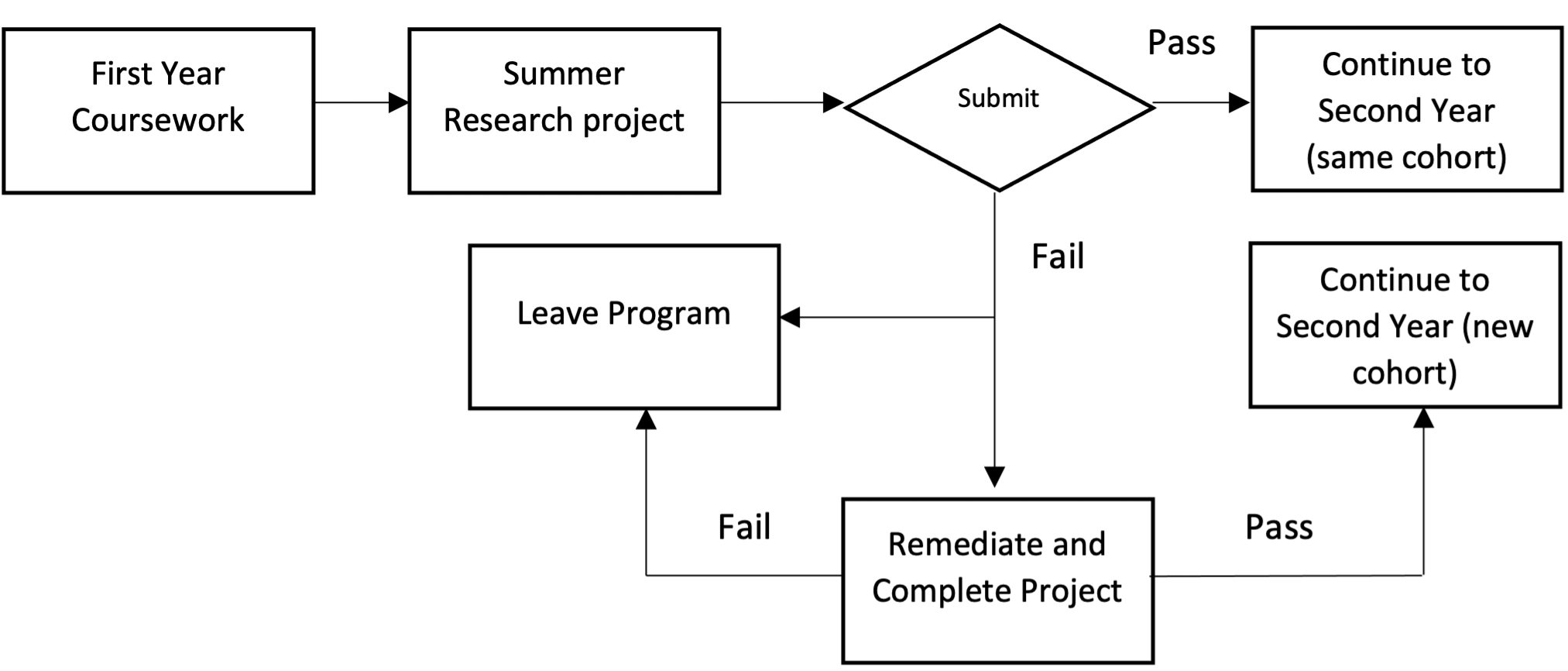Well, you did it. You decided to apply for a Doctor of Business Administration (DBA) program, and you got yourself admitted. So, what now? Of course, there will be a bunch of reading and writing. What about tests? What are the milestones? What is a dissertation? What is a committee? When does all this happen? How will I be graded and judged?
Wow, I don’t even know what to expect!
This is just a brief look inside the mind of an incoming DBA student. They know what just happened and they are (for the most part) clear and why they did it, but what comes now is often an elusive, mysterious, and even frightening thought process. This discourse is intended to bring some clarity to the situation. While each DBA program is somewhat different from all the others, the basic goals, milestones, and processes bear much similarity. Enough, at least, to get some, if not all, of the questions above in better perspective.
For the purposes of illustration, I will use the Doctorate in Business Administration program at Florida International University as a reference to guide you in better understanding the process and flow over the course of your studies.
The First Day
Generally speaking, the very first day of a DBA program is focused on an orientation process. Here, you meet your fellow colleagues in the cohort. This is important because from this day forward, you will be studying, celebrating, commiserating, and ultimately graduating with these people. Get started knowing them because they will be an important prat of your life for the next three years (at least).
Orientation is also where you meet some of the faculty and staff that will stand beside you and guide you every step of the way during the program. Deans, directors, managers, recruiters. and professors are all going to have a few words to say by way of welcoming you to this new and anxiety-producing (temporarily, at least) experience.
Finally, orientation is where all the necessary administrivia takes place – software, pictures, identification cards, library access, calendars, etc. – you name it! Hopefully, time remains in the day for some socializing and relaxation. In our program, we consider that activity as equally important to all others we need to accomplish during orientation.
The First Year
Now, you begin the journey into becoming a practitioner scholar.
The coursework will focus on a range of topics, but most will be centered on fundamentals of research methodologies and quantitative analyses. You will begin learning how to frame problems and solutions as a practitioner-scholar by using a scientific and theory-driven approach rather than the old standby – the seat of your pants and your gut feeling. In other words, evidence rather than conjecture.
I have often told my doctoral students that there are a multitude of sins that you can (and might) commit during your doctoral studies, but two of them are the most damaging: 1) failing to show up and 2) failing to show up prepared. If you can devote all your effort to avoiding these two, you have a far greater chance of success than those who do not.
During this semester and the next, you will begin hearing about your first major milestone: some type of summer research project. Not all programs have them, but most will have something material between years one and two. This project is basically a supervised research effort which affords you the opportunity to demonstrate what you have (or haven’t) learned during your first year of doctoral studies. More about that in a minute…
It is important to understand how your professors will judge your performance and grade you in this first year of doctoral studies. You likely will not have book reports, essays, and tests like you experienced during your master’s program. Instead, you will have weekly classes, discussion, reading, more discussion, more reading, specific writing assignments, residencies, more reading, more discussion, and a final deliverable of some sort that will likely be a research proposal. In other words, your entire semester grade will be based on your performance in class and your performance on the final research proposal deliverable.
If this sounds highly subjective, it is because it is highly subjective. Your professors are there to manage your apprenticeship as a scholar. They know what you need to know and the best way to assess whether you know it is through discussion, debate, and a final deliverable of substance. If you don’t commit the two cardinal sins discussed above, and you can demonstrate what you have learned in written form, you will pass (read ‘live through’) your first year. If not, life will be less than fulfilling, to say the least.
Just remember that you are paying for all this expertise and subjective validation and the professors do not want to pass on someone that can cross the bar, so to speak. Do your best and accept the tough love in the spirit ion which it is offered. Not everyone is cut out to achieve a doctoral degree but, with hard work and dedication, most are.
The Summer Research Project (aka 'the qualifying exam')
Most DBA programs have something like this even if they call it something different. It is thought of as a qualifying exam because, if you fail to achieve the necessary level of success (read ‘demonstrated ability’), you will not be allowed to register for classes in year two. This is so important that many programs, including ours at FIU, devote an 8-week three-credit course just to help you get prepared for this milestone. Then, they devote another three-credit course over the summer to dedicate a professor to serve as your advisor and mentor to answer questions, give advice and guidance, and get you across the finish line.
If you succeed, great! If not, it does not mean all is lost. If your program is a lock-step cohort-based program that admits once a year, it will likely mean you are about to sit out a year and wait until the classes come around again while you are mitigating and remediating your inability to pass the summer research qualifying exam project and demonstrate you are ready to move on to new coursework.
The following graphic illustrates this simple but very real process and outcomes:

The Second Year
C’mon, you passed! Was there any doubt?
The second year is much like the first – reading, writing, weekly classes, residencies, research methods, analytical tools, and lots and lots of discussion. Your dissertation is only ten months away, so you must start thinking about it now! Your entire program has had you thinking about it from day one, you just didn’t notice until now.
Much like your summer research project, your dissertation is a big, supervised demonstration of your skill development and understanding. In a DBA program, you are viewed as the knowledge domain expert and you are free to choose whatever topic or focus you desire. Some develop a continuation of their summer research project while others go in a new topic direction. If you choose the former, you have a good head start on the literature and the development of the project. If you choose the latter, you have a lot of work to do but you should be better and faster at doing it. Either approach is fine.
Also, much like your summer research project, your program will likely devote a three-credit course at the end of your spring semester to help prepare you to embark on the dissertation process. Passing this course means two primary goals have been met: 1) your research proposal is sufficiently developed to be assigned to a dissertation committee and get their approval to proceed (the dissertation proposal defense) and 2) any necessary approvals for human subject’s research have been submitted and well on their way to being received as approved. Get these under your belt and you are one step away from graduation. Granted, that next step is a big one.
The Dreaded Dissertation (not really)
Look, you’ve been doing this for two years – pretty much non-stop. If you have made it this far, there is nothing to fear – just a ton of work.
The dissertation can be thought of as your summer project on steroids. Bigger everything – more pages to write, bigger models to develop, more people to convince and satisfy, and all “I’s” dotted and “t’s crossed”. This is what you have been training for and you should enjoy every minute of it. You will never get this much support for your research for the rest of your life.
The dissertation process is necessarily more complex than your summer project, but it is quite similar. Once you complete your coursework, you will be assigned to a dissertation chair and committee. Your chair will be your primary advisor, collaborator, and mentor during this process and your committee members will be there to support you and your chair. The major difference here is you become responsible for making all the decisions and doing all the work. Your chair can advise and veto, but they are not going to tell you what to do now and what to do next. You are demonstrating to your chair, your committee, and ultimately to the university that you learned what you needed to learn – and can actually do it – so you can graduate, and people can call you doctor.
The graphic below is a high-level model of the dissertation process for the DBA:

Summing It Up
So, there you have it. The process from one end to the other. Now, you know what to expect.
You know what they say, “the devil is in the details” and a great deal of the details have been left out of this article. That said, the plan was to give you an overview and hopefully answer some of your questions. I hope this reached the goal.
Best of luck with your DBA degree!!


